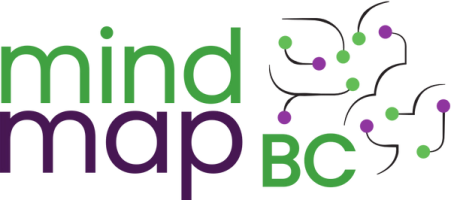Wade R. Alexander Counselling
Summary
Individual counselling
Relationship counselling
Addictions counselling
FNHA
Sliding Scale Available
Seniors
Youth
2S/LGBTQ+ Affirming
Trans Affirming
Two-Spirit Affirming
LGBQ+ Affirming
Online resource
Remote services
Virtual e-counselling practice across British Columbia.
I am an active member of the British Columbia Association of Registered Clinical Counsellors (RCC). I also hold a Canadian Certified Counsellor (CCC) designation with the Canadian Counselling and Psychotherapy Association (CCPA) and a Registered Marriage and Family Therapist (RMFT) designation with the Canadian Association for Marriage and Family Therapy. I am also an active member of the British Columbia College of Nurses and Midwives (RN).
I am EMDR certified, trained in other exposure therapies (progressive counting and FLASH). I offer individual, relationship and family counselling.
Want to learn more about this service’s work with Two-Spirit, trans, LGBQ+ people?
We invite all service providers listed on MindMapBC to answer the following questions. These questions were developed in collaboration with community members, researchers, and mental health and other service providers. They're intended to help us understand what a service provider or organization is doing to affirm and support sexual and gender diverse service users.
See below for responses for this listing.
Want to learn more about our screening questions and filters?
Are the forms used in your practice inclusive of various sexual orientations and gender identities (e.g., opportunities to fill in pronouns, etc.)?
—Yes
The option to identify one's sexual orientation and gender identity on the intake forms in my practice are not a mandatory requirement. They are optional.
Do you collect and use preferred names (rather than legal names) for all communications?
—Yes
I collect and use preferred names based on each client's interests and needs.
Do you and your colleagues have experience providing services that support clients with navigating gender dysphoria*? *TransCareBC describes gender dysphoria as a term "intended to describe the distress some trans people experience with relation to their gender identity, particularly if they would like to transition but have not yet done so".
—Yes
Clients are able to discuss their personal needs in therapy including gender dysphoria.
Please tell us how equipped you feel to support a client in determining if/when their mental health symptoms are related to their gender-related experiences or other factors? Please describe your response choice below.
—Very confident
I have an extensive nursing and mental health background and being a part of the 2SLGBTQQIA+ community I feel comfortable in supporting clients in addressing their specific concerns.
Do you/your colleagues understand the difference between gender dysphoria and mental health conditions/symptoms that are unrelated to gender dysphoria or distress?
—Yes
I can understand that gender dysphoria can co-exist with mental health conditions and symptomology.
Do you and your colleagues have experience working with people who identify as living with a disability or chronic illness? Please tell us more about your experience and any training you have received.
—Yes
I have completed multiple disability applications for folks with a disability and/or chronic illness treatment and support. I have worked in a number of facilities where chronic illness is common.
Are you and your colleagues aware of what specific barriers may exist for Two-Spirit, queer, or trans Indigenous individuals accessing your services?
—Yes
Barriers are common for marginalized folks in various ways. These barriers can include financial issues, peer support and any formal means of transportation, housing or device to attend in-person or virtual e-counselling support.
Are you and your colleagues aware of what specific barriers may exist for LGBQ individuals accessing your services?
No response provided.
Each person is an individual and can have their own specific limitations to be addressed in order to access counselling services. To determine these barriers should be a part of the initial consultation and assessment.
Are you and your colleagues comfortable asking relevant questions about gender identity and sexual orientation?
—Yes
Asking by voluntary means, not mandatory.
Do you offer Indigenous 2S/LGBTQ+ specific resources, for example Indigenous Elders or Knowledge Keepers?
—Yes
I have access to various elders and knowledge keepers in the community that I can refer 2S/LGBTQQIA+ folks.
Do you and your colleagues ask clients about pronouns and use them appropriately?
—Yes
Yes, I use the pronouns preferred by clients.
Are you and your colleagues aware of what specific barriers may exist for trans individuals accessing your services?
—Yes
Yes, access to counselling services may be impeded by multiple barriers including financial i.e., no income to support counselling fees or housing and device access i.e., may not have their own space or electronic device.
Does your practice have gender-neutral washrooms?
—Not applicable (please explain why this is not applicable)
My practice is completely virtual across British Columbia.
Are there clear anti-discrimination policies that include gender identity, gender expression, and sexual orientation in your organization or practice?
—Yes
I am a 2SLGBTQQIA+ affirmative therapist, and I hold an anti-oppressive, anti-racist, and anti-discriminatory view of all client interactions.
Are all individuals involved in service provision actively engaged in decolonizing their practices and/or organization? If yes, please type below what actions you and/or your organization are taking.
—Yes
I access clinical supervision from an indigenous woman who I have worked with for many years. I also take part in ongoing continuing competency opportunities to improve my understanding of decolonization and take actions to make change.
Are all individuals involved in service provision actively engaged in anti-racist practices, policies, and systems in their care model?
—Yes
I continue to learn how to improve my practice in all areas of policy and practice. I hold an BIPoC inclusive and anti-racist view of clients.
Last updated: June 26, 2023
Request changes —

